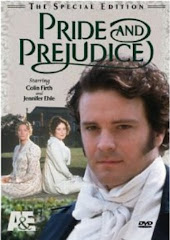The Life and Work of William Shakespeare
The details of William Shakespeare’s life are sketchy, mostly mere surmise based upon court or other clerical records. His parents, John and Mary (Arden), were married about 1557; she was of the landed gentry, and he was a yeoman—a glover and commodities merchant. By 1568, John had risen through the ranks of town government and held the position of high bailiff, which was a position similar to mayor. William, the eldest son and the third of eight children, was born in 1564, probably on April 23, several days before his baptism on April 26 in Stratford-upon-Avon. Shakespeare is also believed to have died on the same date—April 23—in 1616.
It is believed that William attended the local grammar school in Stratford, where his parents lived, and that he studied primarily Latin, rhetoric, logic, and literature. Shakespeare probably left school at age 15, which was the norm, to take a job, especially since this was the period of his father’s financial difficulty. At age 18 (1582), William married Anne Hathaway, a local farmer’s daughter who was eight years his senior. Their first daughter (Susanna) was born six months later (1583), and twins Judith and Hamnet were born in 1585.
Shakespeare’s life can be divided into three periods: the first 20 years in Stratford, which include his schooling, early marriage, and fatherhood; the next 25 years as an actor and playwright in London; and the last five in retirement in Stratford, where he enjoyed moderate wealth gained from his theatrical successes. The years linking the first two periods are marked by a lack of information about Shakespeare, and are often referred to as the “dark years.”
At some point during the “dark years,” Shakespeare began his career with a London theatrical company, perhaps in 1589, for he was already an actor and playwright of some note by 1592. Shakespeare apparently wrote and acted for numerous theatrical companies, including Pembroke’s Men, and Strange’s Men, which later became the Chamberlain’s Men, with whom he remained for the rest of his career.
In 1592, the Plague closed the theaters for about two years, and Shakespeare turned to writing book-length narrative poetry. Most notable were Venus and Adonis and The Rape of Lucrece, both of which were dedicated to the Earl of Southampton, whom scholars accept as Shakespeare’s friend and benefactor despite a lack of documentation. During this same period, Shakespeare was writing his sonnets, which are more likely signs of the time’s fashion rather than actual love poems detailing any particular relationship. He returned to playwriting when theaters reopened in 1594, and did not continue to write poetry. His sonnets were published without his consent in 1609, shortly before his retirement.
Amid all of his success, Shakespeare suffered the loss of his only son, Hamnet, who died in 1596 at the age of 11. But Shakespeare’s career continued unabated, and in London in 1599, he became one of the partners in the new Globe Theater, which was built by the Chamberlain’s Men.
Shakespeare wrote very little after 1612, which was the year he completed Henry VIII. It was during a performance of this play in 1613 that the Globe caught fire and burned to the ground. Sometime between 1610 and 1613, Shakespeare returned to Stratford, where he owned a large house and property, to spend his remaining years with his family.
William Shakespeare died on April 23, 1616, and was buried two days later in the chancel of Holy Trinity Church, where he had been baptized exactly 52 years earlier. His literary legacy included 37 plays, 154 sonnets, and 5 major poems.
Incredibly, most of Shakespeare’s plays had never been published in anything except pamphlet form, and were simply extant as acting scripts stored at the Globe. Theater scripts were not regarded as literary works of art, but only the basis for the performance. Plays were simply a popular form of entertainment for all layers of society in Shakespeare’s time. Only the efforts of two of Shakespeare’s company, John Heminges and Henry Condell, preserved his 36 plays (minus Pericles, the 37th).
Thursday, April 29, 2010
Subscribe to:
Post Comments (Atom)





No comments:
Post a Comment
Note: Only a member of this blog may post a comment.